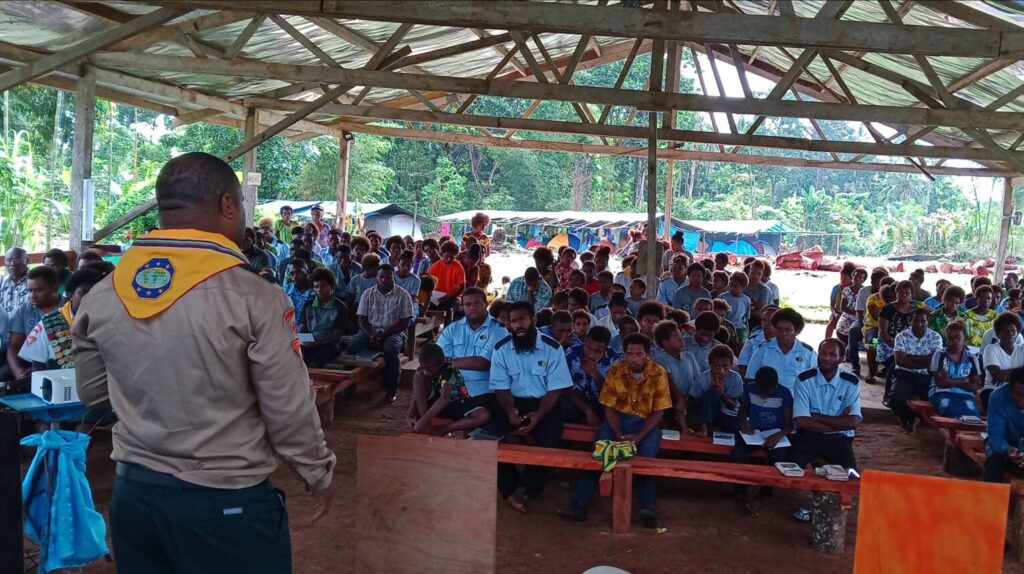The work–life imbalance of Seventh-day Adventist ministers revealed by academics at Avondale has helped the Church in Australia rethink professional development.
A paper by Warrick Long and Peter Williams of Avondale Business School informs the new Ministry Development Process, which encourages ministers to talk about, resource and develop a plan for their ministry. “Should pastors be available all the time?” reveals the findings of a study—the first of its kind—of 78 local church ministers.
Three in four of those ministers indicate work interferes with developing and maintaining friendships and with participating in out-of-work activities and almost all (90 per cent) indicate it keeps them from family and friends. Even more (97 per cent) feel rushed or pressed. A comparison of the work–life balance of ministers with that of other working Australians found the ministers had significantly higher levels of interference than any group in the national survey. Yet more than half (58 per cent) feel satisfied with their work–life balance. The implications of this incongruity? “Many pastors are not living and modelling balanced lives and are not establishing important nurturing relationships,” write Long and Williams.
The study does not cast blame, noting a “begrudging” acceptance by ministers of what they feel cannot be changed while attempting to make the best of their situation. Other comments indicate the risk of “missing out” or receiving criticism for not being continually accessible outweighs the potential consequences for relationships. Several comments imply difficulty in defining or in encouraging others to recognise or honour boundaries. “These suggest a potential for a culture of unhealthy employment practices.”
So, who takes more responsibility for maintaining work–life balance: employees or employers? “All need to take responsibility,” says Long. “Employees need to draw that boundary and talk with their employer about reasonable expectations. Employers need to reconsider the distribution of work now that use of technology, and email in particular, has increased workload.” Both Long and Williams identify changes in workplace culture as also contributing to the problem. “With the growth in the number of ‘knowledge worker’ roles, there’s no way to measure what we do at work other than to count the number of hours we work,” says Long. “So, a productive person works long hours, right? Wrong. It’s usually the opposite.” [pullquote]
The Church in Australia’s Ministerial Association developed the Ministry Development Process in response to Long and Williams’ study, among others. Ministers begin the process by completing, with three or more of their church leaders and mentors, an online competency assessment profile. This gives a score informing and guiding conversations in seven areas of ministry. Ministers and their mentors then choose one or two areas on which they will base their Ministry Development Plan. The plan includes using resources such as books, discussion units and webinars, setting goals with timeframes and choosing an accountability partner. The process, which the Church in the South Pacific will make more widely available through an online tool this year, includes a quarterly review by the minister and their partner and a yearly evaluation with church leaders.
Self-leadership and time management are two of the seven areas of ministry, and they are the lowest factors in a trial of the Ministry Development Process in Queensland and Western Australia. According to Ministerial Association secretary Pastor Brendan Pratt, this confirms the findings of Long and Williams’ research and supports the role of mentors and accountability partners. “Ministers are a hardy lot and many thrive in isolated, difficult environments—as do many of our church members,” he says. “We’re proud of them, but we’re also concerned about their long-term health and the health of their families. Central to the Ministry Development Process is being ‘Healthy in Christ.’ Ministry works best when it flows out of a healthy relationship with Christ and expressed in healthy relationships, especially with those we see the most.”
For their study, Long and Williams wanted to know whether the perpetual connectivity of using technology such as email helped or hindered the work–life balance of ministers. Based on the biblical principles of rest and stillness and on the writings of church pioneer Ellen White, the two “felt it important to consider this issue in light of the additional expectation for ministers to espouse and model a ‘healthy’ balanced lifestyle.”
They found almost all ministers (98.7 per cent) check their work emails when not at work. About two-thirds “like to know what is happening” or found “it helps me manage things when I go back to work on paid time.” Notably, almost one out of four indicated “work is an important part of who I am.”
Most of the ministers (53.8 per cent) found it “helpful” having work email available to them all the time, although comments in response to this question recognised the need for balance. “Now that emails can be accessed at all hours, employers can tend to forget that there are times when it is ‘tools down,’” wrote one minister. “I wish we could switch off and not have the constant intrusion.”
More than one-third of ministers experienced a “significant” or “substantial” increase in the number of work-related emails. Their comments indicate they see this as a good and a bad thing—good because communication is improving, bad because “I’ve started to switch all communications off when with family, but this has been met by quite scathing remarks from administrators.” Other comments such as “Deal with it—part of modern life” demonstrate what Long and Williams call “a silent resignation.”
However, like the finding from a similar study of administrators, support staff members and teachers employed by Adventist Schools Australia, two-thirds of ministers (60.3 per cent) do not want restrictions placed on their access to work-related emails outside of work hours.
“Should pastors be available all the time?” appears in the May 2016 issue of Ministry, an international journal for pastors published by the Ministerial Association of the worldwide Adventist Church.






